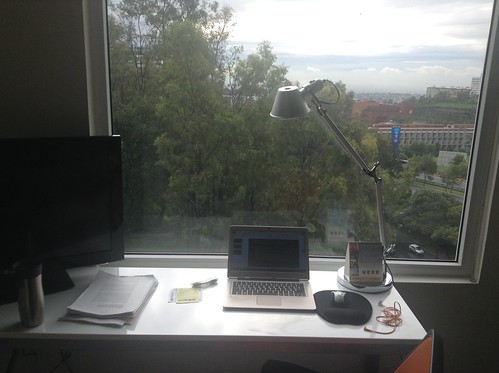The “slow everything” movements (slow water, slow food, slow blogging) have become popular in recent years, largely as a response to the excessive speed at which we lead our lives nowadays. Given that one of my claims to fame has always been how fast I am at doing everything I do, my own response to the slow movement seems to have been, aptly and pun intended, being slow on the uptake. The slow science movement has been gaining momentum particularly because of the way in which we have been pushed by exogenous forces to publish more, write more, give more talks, bring more grant money into our institutions.
Given my own health issues in the past year, and being confronted with the fragility of my human being, I started to push back against this paradigm myself. Ironically, in the year where I lost an entire month of my life to illness (January 2015) is also the year where I’ve travelled to the most places (New Orleans in the US for #ISA2015, Chicago for #AAG2015, Vancouver in Canada for #CAG2015, Edmonton in Canada for #IASC2015 and Milan in Italy for #ICPP2015, plus two keynotes in Montreal and a few workshops and other research trips here and there).
My good friend Alison Mountz (who was a graduate school friend of mine, and with whom I regained touch when we saw each other this year at the Association of American Geographers conference in Chicago) and her coauthors have written an extraordinary piece on the need for slow scholarship as a mode of feminist resistance to the neoliberal university. I encourage you to read it as it is an excellent piece on how shifting the way we approach research can, through collective action, engage and possibly affect change on the way research and science (and social science) is done nowadays.
I was reflecting on the slow scholarship movement in the past couple of days because I wrote a book chapter in two days, but I had been already slowly thinking about this paper and the logic of its argument for TWO YEARS. Yes, the very first draft of this paper had already been written (and I forgot about it) in the summer of 2013. So, you can’t really rush science. And while I encourage my fellow scholars to get their manuscripts out when they’ve been sitting on the desk for too long, it’s more a call to complete the cycle of slow scholarship. Once you know the ideas are there, the research is there, it’s time to finish it off.
A nice reflection post-AAG2015 on the slow scholarship paper by Mountz et al can be read here.


0 Responses
Stay in touch with the conversation, subscribe to the RSS feed for comments on this post.